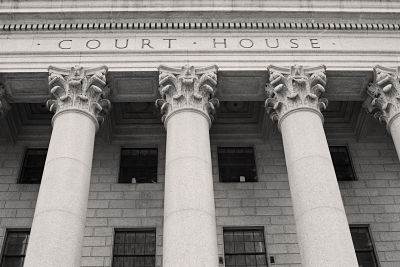There is a basic rule in criminal defense law that a defendant cannot advance a legal theory on appeal if they did not raise the same argument during the trial. The reason for this is simple: An appeals court is there to review possible legal errors made by the trial judge, not retry the entire case from scratch. This rule equally applies to prosecutors as well.
Court of Criminal Appeals: Prosecution Cannot Benefit from Argument They Never Actually Made
Indeed, the Texas Court of Criminal Appeals recently held an intermediate appeals court made a mistake when it overruled a trial judge’s ruling in favor of a defendant based on a legal theory the prosecution “did not raise at trial or on appeal.”
A grand jury in McLennan County indicted the defendant for causing injury to a child. About a month later, the defendant’s attorney e-mailed the prosecution asking for discovery. By law, the defense is entitled to discovery, or pre-trial disclosure, of certain evidence that may be used at trial. If the prosecution fails to disclose a piece of evidence, the trial judge can exclude it from the case.
In this particular case, the prosecution learned about the existence of a 911 call some 14 months after receiving the defense’s discovery request. The 911 call was recorded on the date of the defendant’s alleged crime. The prosecution subsequently requested and obtained a copy of the 911 call and turned a copy over to the defense.

But the defendant was not satisfied with this response. By law, the prosecution had a duty to produce discoverable evidence “as soon as impracticable.” Given the 14-month delay, the defense argued the 911 call should be excluded at trial. In response, the prosecution argued that “as soon as practicable” should mean from the date they learned about the existence of the call, not when it was actually made or recorded.
The trial judge did not buy this argument and granted the motion to exclude the call. The judge said it was up to the prosecution, not the defense, to “ascertain what discoverable evidence was held by the sheriff’s office and disclose it as soon as practicable.” The prosecution could therefore not use the fact that 14 months elapsed as justification for delayed discovery.
The prosecution appealed the judge’s ruling to an intermediate court of appeals. The intermediate court determined the “as soon as practicable” requirement was not triggered, as the defense attorney’s initial e-mail to the prosecution did not directly reference the applicable statute “and did not designate any items sought to be produced.” The state was therefore never under any obligation to produce the 911 call at all.
The Court of Criminal Appeals rejected this justification for reversing the trial judge’s decision, as the “adequacy” of the defendant’s discovery request “was not raised by the State in its appeal.” Had the state raised such an argument with the trial court, that would be different. But the intermediate court could not rely on an “unassigned error” such as this to reverse the trial judge’s decision to exclude the 911 call.
Speak with a Houston Criminal Defense Lawyer Today
Prosecutors need to play by the same rules as defendants when it comes to a criminal trial. An experienced Houston criminal defense attorney can help make sure you receive a fair trial. So if you have been charged with a criminal offense and need legal representation, contact the Law Offices of Tad Nelson & Associates today.